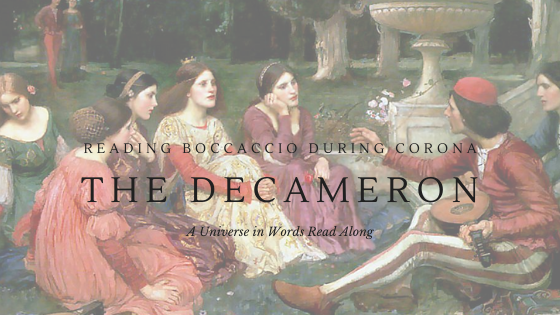"Love and Loss in a Cruel World: Tragedy and Patriarchy in the Tale of Tancredi and Ghismonda"

Introduction
Giovanni Boccaccio’s The Decameron is a treasure trove of human stories—humorous, tragic, satirical, and wise. One of the most haunting is the very first tale of the fourth day, told by Fiammetta: the story of Tancredi and Ghismonda. This tale of forbidden love, control, and tragedy is a powerful commentary on the harsh consequences of patriarchal authority and the suffocating limitations placed on women. My focus in this review is how Boccaccio uses dramatic irony and poignant imagery to highlight the cruelty of excessive control and how this tale, despite its 14th-century origins, still resonates deeply with modern readers confronting themes of autonomy, love, and loss.
Summary
Tancredi, the Prince of Salerno, is overly protective of his daughter Ghismonda, keeping her unmarried for too long. When she is finally widowed, he expects her to remain chaste and under his control. However, Ghismonda falls in love with Guiscardo, a man of lower status. When Tancredi discovers the affair, he orders Guiscardo to be killed and sends his heart to Ghismonda in a golden cup. In response, Ghismonda drinks poison and dies, clutching her lover’s heart.
Analysis
The central theme of this tale is the destructive power of possessive love and patriarchal control. Tancredi’s obsessive attachment to Ghismonda—couched in paternal care—ultimately destroys both his daughter and her lover. His inability to see his daughter as an autonomous being capable of love and decision-making turns his affection into tyranny. Boccaccio paints a chilling picture of how such control, even when well-intentioned, can lead to irreversible harm. The tragic ending is not just the result of Tancredi's wrath but of a societal structure that denies women agency over their own lives.
Ghismonda emerges as one of the more compelling female figures in The Decameron. Her speech to her father, when she defends her love and condemns his actions, is delivered with clarity, dignity, and moral conviction. Her argument that love is a natural and uncontrollable force is a direct challenge to the idea that noble birth or social class should dictate whom one may love. In this way, Boccaccio gives her not just emotional depth but intellectual authority. She is not a victim merely of fate, but of a system that stifles women’s choices. Her death is tragic, but her voice is powerful, and her final act of defiance—drinking poison after receiving her lover’s heart—is symbolically rich, evoking both the literal and emotional consumption of love.
The tale is deeply symbolic and employs irony with devastating effect. The golden cup containing Guiscardo’s heart is a particularly striking image—what is meant to be a punishment becomes a sacred relic to Ghismonda. Ironically, Tancredi’s attempt to sever the bond between the lovers only immortalizes it. Furthermore, the title "Prince" gives Tancredi power, but his actions reveal a man ruled by fear and pride rather than wisdom. The story's poetic justice—his eventual loneliness and regret—serves as a moral lesson against such tyranny.
Set in the 14th century, this tale reflects contemporary concerns with family honor, class hierarchy, and female chastity. At the time, marriages among nobility were strategic, and a widow’s sexuality was seen as something to be guarded or suppressed. However, the tale also challenges these norms, suggesting a more humanistic and emotional understanding of love. Today, readers can still identify with Ghismonda’s desire for autonomy and the pain caused by controlling relationships. In an era when discussions about bodily autonomy, gender equity, and emotional freedom are ever-present, this tale remains strikingly relevant.
Personal Response
What stood out most to me in this tale was Ghismonda’s courage. Despite the overwhelming power her father holds over her life, she speaks her truth and dies on her own terms. I found her both admirable and heartbreaking. Her emotional clarity and moral reasoning felt surprisingly modern. I also appreciated how Boccaccio refuses to provide a happy ending just to comfort readers; the tragedy drives home the weight of the themes more effectively. I enjoyed the story not for its sorrow, but for its depth and its unflinching look at the consequences of love denied.
Conclusion
The tale of Tancredi and Ghismonda is a tragic masterpiece that speaks to timeless human struggles: love, loss, autonomy, and the misuse of power. Boccaccio’s use of vivid symbolism and tragic irony lends the story a poignant emotional weight. Though set in a world very different from our own, the emotional truths it conveys are universal. It urges readers—then and now—to consider the cost of control and the enduring strength of love in the face of cruelty. That is why this tale still matters today.








